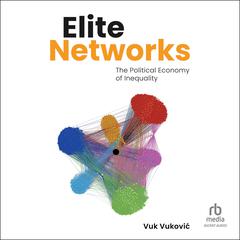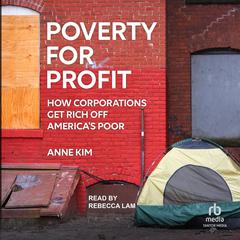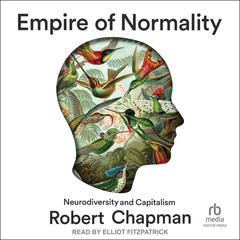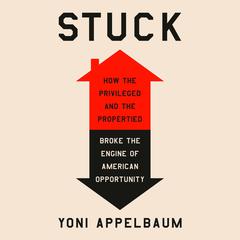 Play Audiobook Sample
Play Audiobook Sample
Looking Backward Audiobook
 Play Audiobook Sample
Play Audiobook Sample
Quick Stats About this Audiobook
Total Audiobook Chapters:
Longest Chapter Length:
Shortest Chapter Length:
Average Chapter Length:
Audiobooks by this Author:
Publisher Description
The time is tomorrow. The place: a utopian America. The hero: anyone who has ever longed for escape to a better life. This is the backdrop for Edward Bellamy’s prophetic novel about a young Boston gentleman who is mysteriously transported from the nineteenth to the twenty-first century—and from a world of war and want to a world of peace and plenty.
Translated into more than twenty languages and the most widely read novel of its time, Bellamy’s visionary view of the future offers a blueprint of the “perfect society,” a guidebook that stimulated some of the most prominent thinkers of our age. John Dewey, Charles Beard, and Edward Weeks, in separate surveys conducted in 1935, all listed Edward Bellamy’s novel as the most influential work written by an American in the preceding fifty years.
Download and start listening now!
"Bellamy's predictions made prior to 1900 about what the year 2000 would look like are entertaining and enlightening. The premise of the novel, rich guy in 1887 uses a "mesmorizer" to help him sleep. His bedroom is in a vault like basement of the house he is having built so he and his fiance can start their new life together. House burns down, he is in a trance in the basement,safe but lost to the world. He stays in this trance unaging for 113 years when he is discovered by the new owners. The book details his discovery of the socialistic paradise of the year 2000. Some things were accurately predicted, others, not so much. The novel raises several good points, even a hundred years later."
— Kerry (4 out of 5 stars)
Quotes
-
“There is no better book than Looking Backward for understanding the intersecting private and public spheres in Victorian America.”
— Richard Fox, Professor of History at the University of Southern California -
“One of the great utopian novels...remains at its heart a profoundly radical work of social prophecy.”
— Alex MacDonald, Associate Professor of English at Campion College, University of Regina
Looking Backward Listener Reviews
-
" Another book I read again and again. An important utopia in terms of influence and history, though the writing hasn't held up well over time. "
— Matthew, 2/12/2014 -
" This book is interesting, but it largely consists of lectures given by one interlocutor to another explaining how society in the 20th century will work. So it's interesting as a utopian text, but not nearly so much as literature. I found myself skipping large chunks of text towards the end... "
— Dimitri, 2/9/2014 -
" Apparently this book was all the rage before the 1920s. Don't even bother picking it up. 1984 was much better. "
— Liesel, 1/31/2014 -
" I did a chapter of my dissertation on this book, so don't get me started... "
— Jim, 1/30/2014 -
" I read this book for school years ago. The book was written I believe in 1888. And the Author's vision for the future was to me amazing. "
— Laura, 1/30/2014 -
" A Utopian account of what the future could have held, written in 1888. "
— Sarah, 1/30/2014 -
" I read this as a college freshman. I just remember thinking it was a horrible book. Maybe I'll re-read it, give it another chance. "
— Melissa, 1/27/2014 -
" A fun primary source, if only because Bellamy predicts mp3 players and malls, all in the wake of a socialist propaganda narrative! DING! "
— John, 1/19/2014 -
" The book was interesting, but it really isn't that great. Peter and I got to know each other because of this book, because we had to a presentation over it. So to me, this book will always be special. "
— Rachel, 1/2/2014 -
" Yes, it's overly optimistic and fluffy, but I liked it anyway. Like others, I was impressed by Bellamy's ability to predict credit cards and shopping malls. Thought the romantic angle was meh..... and I was amused by the Victorian male's vision of futuristic feminism. "
— Elizabeth, 12/31/2013 -
" 12th grade and up. I'm not sure if I would use this whole book because the language could be difficult and the concept of a utopia such as this may be completely foreign to students. I may consider taking segments of this books and implementing it as short text. "
— Robert, 12/5/2013
About Edward Bellamy
Edward Bellamy (1850–1898) was a US author and journalist who abandoned his law practice to become associate editor of the Springfield (Massachusetts) Union. Later he worked as an editorial writer for the New York Evening Post and founded the New Nation, a Boston newspaper, as an organ for his views about the injustices in the economic and social systems. But his heart was primarily in the field of literature, and he wrote several short stories and novels.
About Edward Lewis
Edward Lewis (a.k.a. David Hilder) is a stage, film, and television actor. He has narrated unabridged audiobooks for over eighteen years and has recorded more than two hundred titles, spanning works of fiction and nonfiction.






















